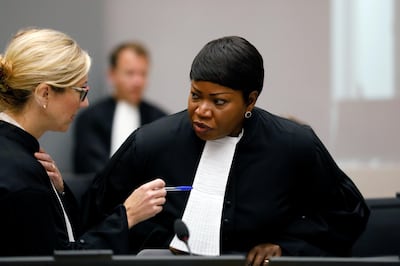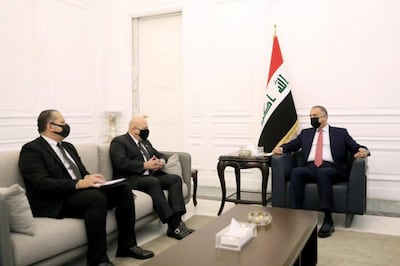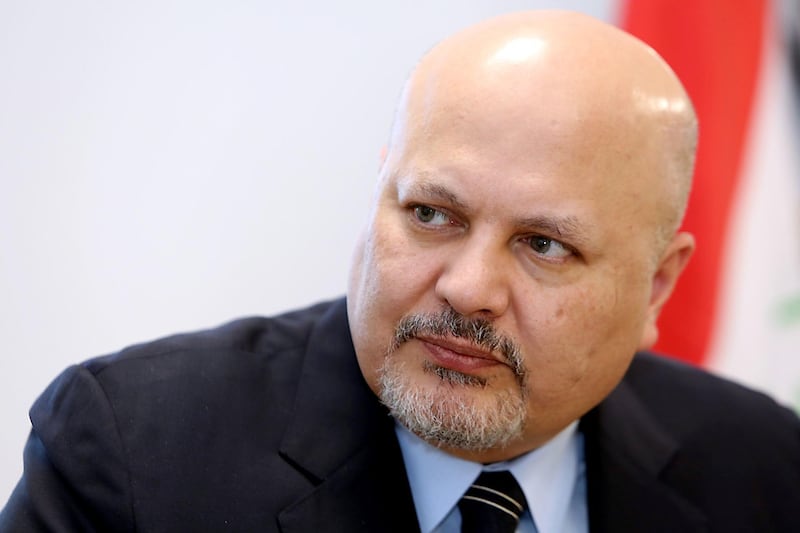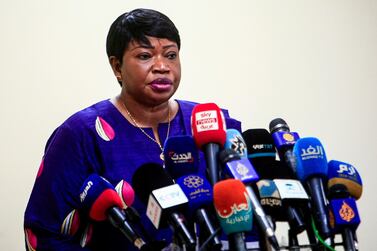After months of deliberation, the International Criminal Court (ICC) has elected a new chief prosecutor. Karim Khan becomes only the third prosecutor in the Court's history. The British national's appointment comes at a crucial, difficult and promising time for the institution. He will have his work cut out for him for a variety of reasons, but he has many strengths to draw upon as he attempts to navigate through difficult political and legal waters in the coming months and years.
Mr Khan will take up his position in June, when the tenure of the current chief prosecutor, Gambia's Fatou Bensouda, comes to an end. In 2012, Ms Bensouda inherited an office that had many faulty and floundering investigations and cases. Many of those cases collapsed, including, most famously, those against Kenyan President Uhuru Kenyatta and Deputy President William Ruto. But Ms Bensouda cleared the decks, revised and improved prosecutorial strategies, and took a number of bold decisions. None were bolder than her decisions to pursue investigations into Afghanistan and Palestine.
In Afghanistan, the Court is investigating alleged war crimes committed by US forces. If an investigation is opened into Palestine (last week, ICC judges gave the prosecutor the green light to do just that), then Israeli officials and forces could be in the prosecutor's crosshairs. They are both sensitive cases, but political actors often overlook the fact that the ICC will also investigate other entities within the purview of these cases. For instance, it will look into alleged atrocities committed by the Taliban and Afghan forces in Afghanistan, and by Hamas and other terrorist entities in Palestine. The Afghanistan case is more than just about alleged US crimes, and Palestine is not all about alleged Israeli atrocities either. But Mr Khan will, rightly or wrongly, be judged on how he handles both investigations.

There are other pressing concerns demanding the incoming prosecutor's attention. Russian forces are under scrutiny in two theatres: Ukraine and Georgia. The ICC is investigating atrocities allegedly committed by the Myanmar military against the Rohingya ethnic minority. Sanctions imposed on senior ICC staff by the Trump administration in retaliation for opening an investigation into Afghanistan remain in place, although they are now under review by the US State Department. Meanwhile, the Israeli government is attempting to mobilise states into undermining the ICC and its independence.
That the stakes are high is nothing new for Mr Khan.
He has a storied career as a defence lawyer at the ICC. He fiercely represented Mr Ruto during proceedings in The Hague, which some Kenyan civil society organisations took exception to during the prosecutor's election. He also represented Saif Qaddafi, the son of former Libyan president Muammar Qaddafi who remains wanted by the ICC for alleged crimes against humanity during the 2011 uprising and civil war. While defending those alleged to have committed mass atrocities is sometimes viewed as controversial, it is essential and often thankless human rights work. In any case, Mr Khan's experiences as a defence lawyer will be a major strength when he prosecutes complex cases.
His work in the Middle East could serve him well, including heading a UN team supporting Iraqi efforts to address ISIS atrocities. Despite international crimes being committed with wanton impunity in Syria, Iraq and elsewhere, the region remains something of a blind spot for international criminal law and justice. If Mr Khan could encourage states in the region to engage with the Court more deeply, it would amount to a significant win for the ICC.

Several adjectives have been used to describe Mr Khan: confident, charismatic, committed, hardworking, serious and diligent. Observers do not doubt where he stands on issues. He is an exceptional orator. The first time I encountered him was in 2010 when I watched him represent the Lebanese television network, Al Jadeed TV, and journalist Karma Khayat over the charge of contempt of court before the Special Tribunal for Lebanon. I was told that prosecutors were often wary of going up against Mr Khan while judges loved having him in court because of how effective he was.
Mr Khan attracts strong and loyal support, which will come in handy not only for the work that the Court does but how it carries it out. Following allegations of impropriety at the ICC, exposed in last year’s Independent Expert Review, it is essential that Mr Khan promotes a working culture and atmosphere that is free of harassment, welcoming of diversity and genuinely accountable. Also, the legal and political challenges facing the ICC cannot be addressed by one individual, no matter how successful a lawyer or how charismatic a leader he or she is. Having the right staff in place will be essential.

Furthermore, Mr Khan still needs to convince many that he is the right person for the job. At the appropriate time, it would be wise for him to reach out directly to members of Kenya's civil society, who continue to have serious reservations about him because of his role in defending Mr Ruto. Despite months-long efforts, it is notable that the ICC prosecutor's election did not result in the emergence of an obvious candidate. In fact, this is the first time the prosecutor was elected and not chosen by consensus. In the second round of voting, Mr Khan received 72 of 122 votes, with some member states viewing him as an "unacceptable" candidate. This is not the time for fractured support for the Court and Mr Khan needs to work at mending fences.
Few believed that the ICC would have the courage to take on powerful nation states. Those states would like to see Mr Khan pull his punches. But this is the time for the ICC to be bold, creative and smart. Mr Khan’s tenure will be punctuated with wins, losses and many difficult moments, but he has the tools and the character to succeed. Whether he does or not, only time will tell. For now, he deserves the benefit of the doubt.
Mark Kersten is an expert in international law and a consultant at the Wayamo Foundation






